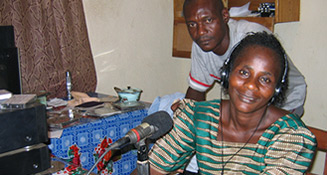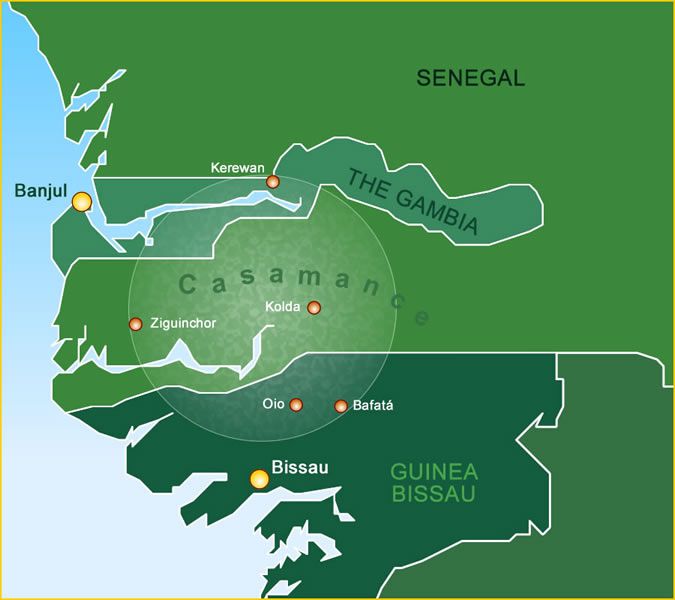 Version Française
Version Française
|
|
 |
|
Casamance Grantmaking rationaleKnown for its rich natural resources and the fertility of its land, the Casamance region of Senegal has supplied the rest of Senegal with an abundance of food for centuries. However, during colonial rule and into the years following independence in 1960, Casamance was overlooked and the population experienced economic disadvantage, relative to the rest of the nation. This sense of marginalization was felt particularly by Casamance’s Diola majority, who differ from the rest of the country in their cultural and religious practices, with a highly decentralized and egalitarian social system that gives women a central position and a respected role in rice production. A growing movement for independence in Casamance, was forcefully subdued by the Senegalese government and in 1982, the emergence of an armed rebel movement resulted in twenty years of bitter conflict and brutal acts of violence on both sides. This led to the destruction of many villages, the displacement of tens of thousands of people, and the stagnation of a once-vibrant local economy. With the arrival of a new president in 2000 and an exhausted civil society, calls for peace grew, with rural women playing an active role. Negotiations with rebel leaders led to the signing of a peace agreement in 2004. As peace is established, Casamance women and their families are returning to their villages to revive their communities, recommence agricultural production, heal the wounds of violence, and build links with connecting communities in the Gambia and Guinea Bissau. Senegal has recently been chosen to receive funding from the Millennium Challenge Corporation, and this is expected to result in improved road infrastructure in Casamance and increased opportunities for farmers to connect with markets. New Field is inspired by the energy and commitment of local peace-building and peasant organizations that work closely with rural women and their families to achieve positive long-term change in Casamance.
|
